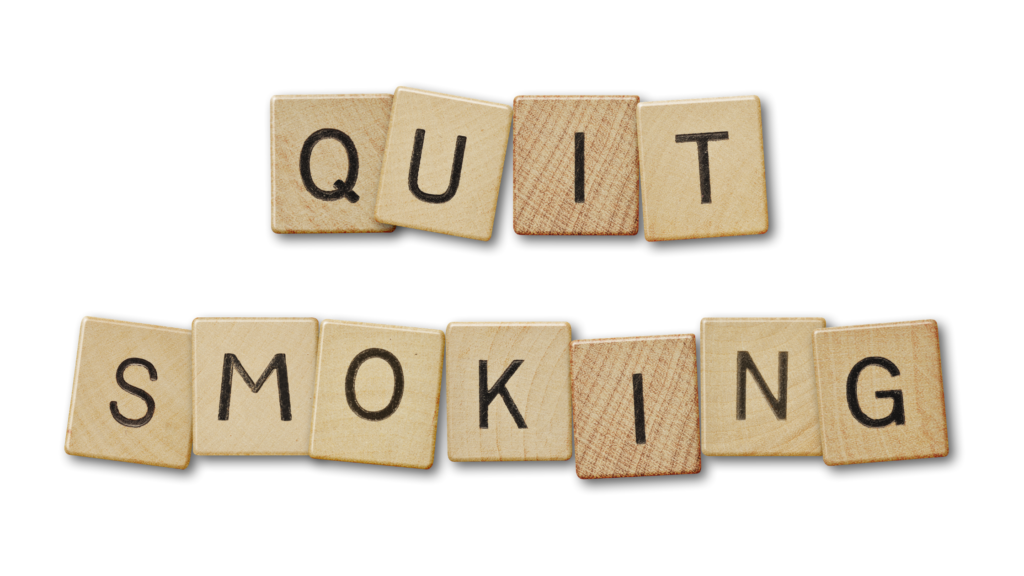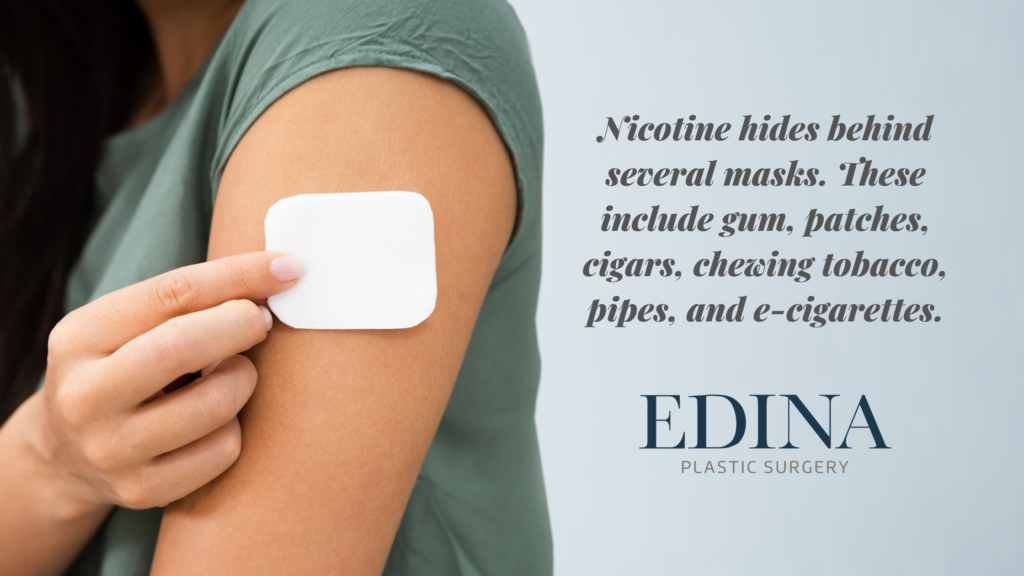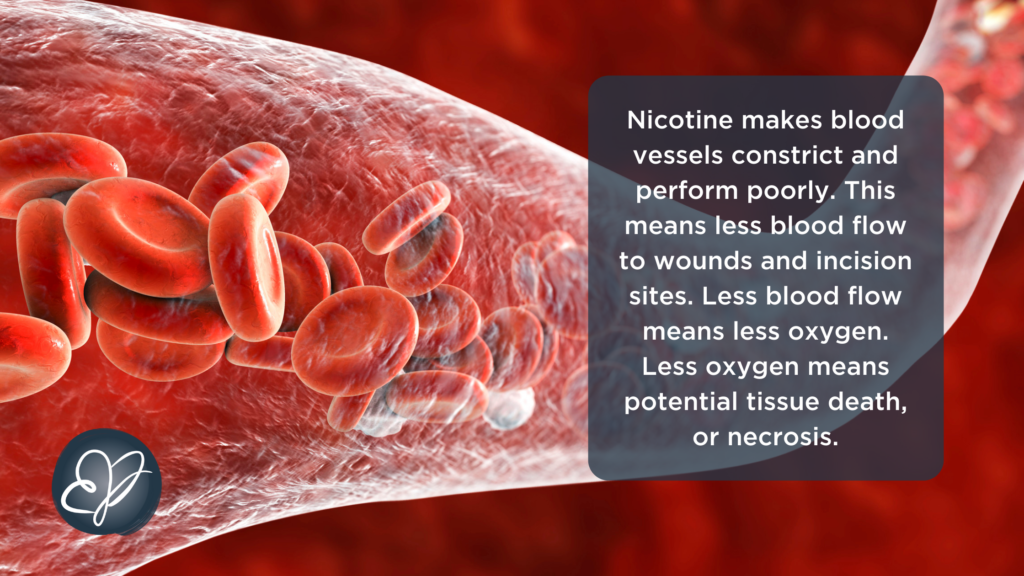It’s no news flash that smoking and surgery don’t mix, but putting an end to lighting up may be even more critical when it comes to the intricacies of Plastic Surgery. Your surgeon will undoubtedly tell you to quit the habit for at least six weeks before and after your surgery. The truth is, he or she is concerned about more than just your heightened risk of lung cancer. Let’s take a closer look at why abstaining from nicotine and tobacco use is vital to your Plastic Surgery recovery and overall safety.

The negative effects of nicotine on surgery.
When you’re advised to quit smoking before your Plastic Surgery procedure, your surgeon doesn’t just mean cigarettes. Nicotine hides behind several masks. These include gum, patches, cigars, chewing tobacco, pipes, and e-cigarettes.
Why is nicotine so detrimental to surgery? Imagine your blood vessels like big oil pipelines that supply your body with the oxygen and nutrients required to function properly and heal wounds. When blood vessels are healthy like this, they can effectively help your body recover after surgery by rushing vital nutrients and oxygenated blood to wounded tissue and incision sites. The blood vessels of someone who regularly uses nicotine are more like skinny drinking straws that struggle to transport rich, oxygenated blood through the body. In a nutshell, nicotine significantly affects how well your body can heal after surgery because it constricts your blood vessels.

Why is abstaining from nicotine especially vital for Plastic Surgery?
Unlike some general surgeries, Plastic Surgery works in layers of skin, fascia, fat, and muscle. Your surgeon is often working layer by layer to lift, pull, stretch, remove, and reposition various tissues. That means each delicate layer will have blood vessels that may be severed and will need to heal. It is the remaining blood vessels’ job to pick up the slack and ensure that the surrounding tissues get the oxygen and nutrients they need to heal. Without adequate oxygen supply to each of these layers, your wound healing capacity may not just be compromised, but tissues may die.
According to statistics from the American Society of Plastic Surgeons (ASPS), smokers have significant complication rates after Plastic Surgery:
- Smokers are 12.5 times more likely to have tissue necrosis after Facelift Surgery.
- Smokers have a 27.5% incidence of abdominoplasty flap and umbilical necrosis.
- There is up to a 33% incidence of implant loss in smokers who have immediate breast reconstruction surgery with implants after mastectomy.
Nicotine makes blood vessels constrict and perform poorly. This means less blood flow to wounds and incision sites. Less blood flow means less oxygen. Less oxygen means potential tissue death, or necrosis.
What other problems can nicotine use potentially cause for Plastic Surgery?
- Heightened risk of infection
- Death of fat cells, potentially resulting in hardened lumps
- Complications with wound healing
- Thickened, more pigmented scarring
- Blood clots which can be fatal
- Increased pain and discomfort after surgery
- Permanent damage to small blood vessels
- Complications with breast implants
- Heightened risk of stroke and heart attack during and after surgery
- Increased risk of pneumonia after surgery
- Reduced skin flap survival rates
Tips to help quit smoking before Plastic Surgery.
Tobacco and nicotine use is a habit that can be extremely difficult to break. But, Plastic Surgery can be an incredibly motivating goal to finally quit for good! Your surgeon will recommend that you stop using all nicotine and tobacco products for at least six weeks before and after your surgery. Look at this as an opportunity to change your life for the better, not just to prepare your body for surgery.
Here are some tips to get you on the fast track to embracing a healthier lifestyle without nicotine:
- Place an inspirational picture of how you want to look after your Plastic Surgery on your bathroom mirror and smartphone wallpaper. This visual will help remind you of what you’re working towards and how much you want it!
- Avoid your triggers. This may mean abstaining from alcohol as well as smoking, as the two usually go hand in hand. But, this can also include avoiding stressful situations like evening traffic.
- Keep your hands and brain busy. Clean and organize your house in preparation for surgery. Tackle your to-do lists. Keep your mind occupied.
- Spend time with non-smoking friends who will reinforce and validate your decision to stop smoking.
- Download apps like QuitStart that will send positive reinforcement notifications to your phone, help you manage your progress, and keep you on track with healthy tips and tricks.
- Discuss non-nicotine prescriptions with your primary care provider to assist you in your efforts.
Quitting smoking before your procedure can lay the foundation for a healthier, more beautiful life after surgery. Schedule a complimentary consultation to discuss any Plastic Surgery procedure you may be considering and to express any concerns about quitting smoking before surgery by calling (612) 688-3177 or by CLICKING HERE.



